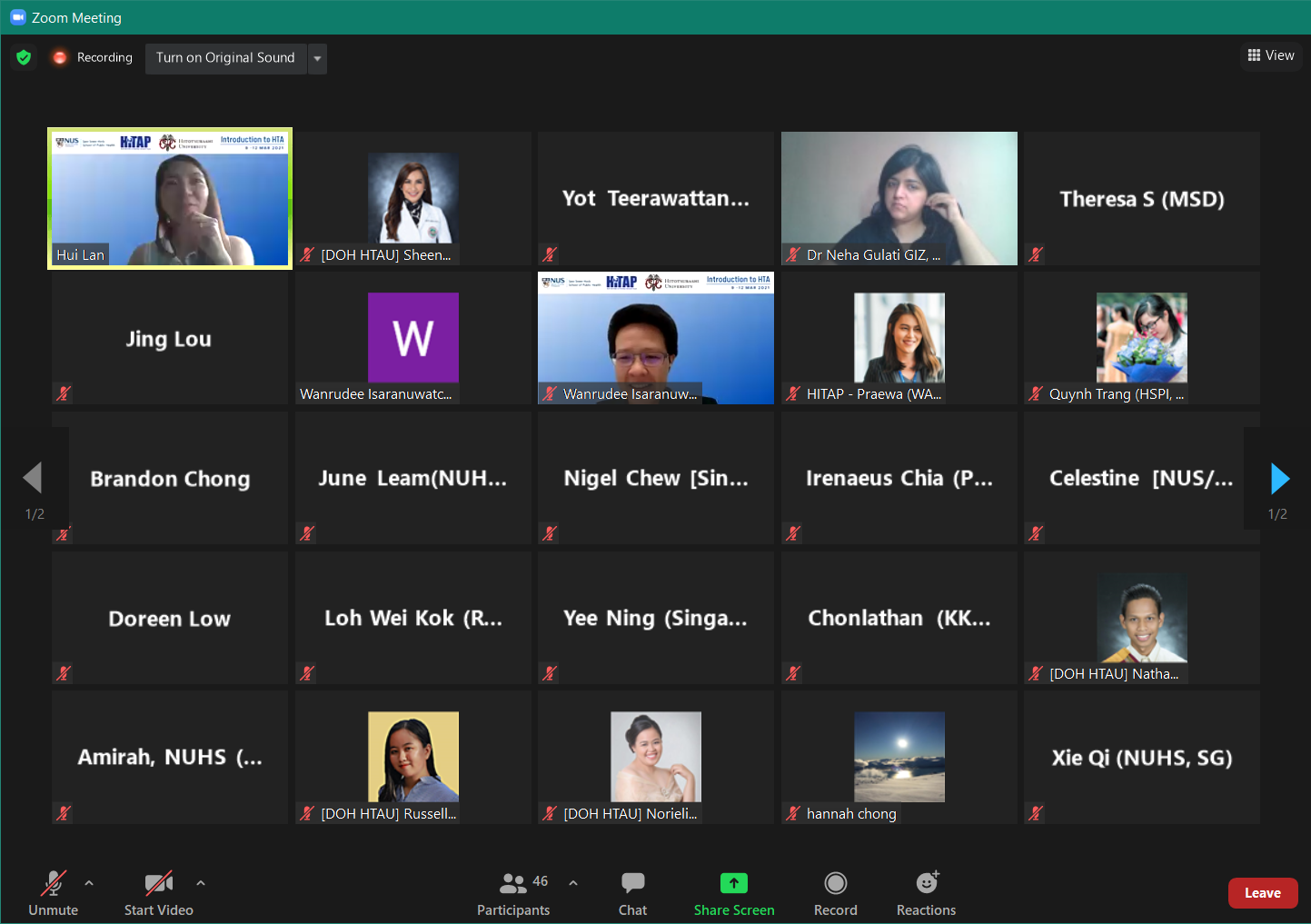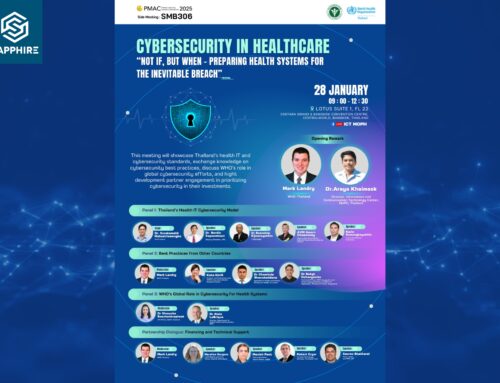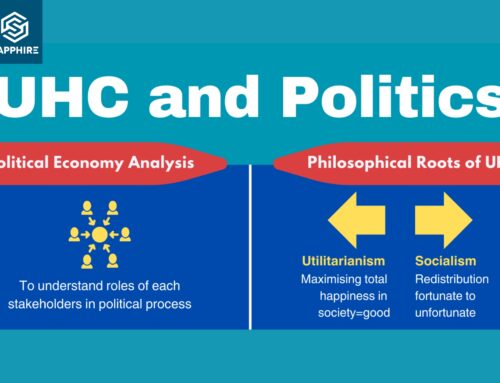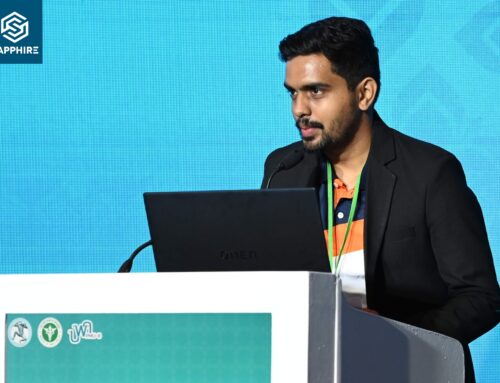On March 9-12, 2021 individuals from various countries and from different sectors had the pleasure to learn from experienced experts of the National University of Singapore- Saw Swee Hock School of Public Health, Health Intervention and Technology Assessment Program (HITAP) of Thailand, and Hitotsubashi University of Japan.
The workshop started with an open discussion among participants on the definition of health technology assessment highlighting the need for wise choices for the allocation of scarce health care resources. Economic evaluations and some of its examples were also introduced on the first day. The second day had a discussion on evidence synthesis through systematic review and network meta-analysis which is a synthesis of available literature and a way of estimating an ‘average’ effect of health technologies. Evidence synthesis was emphasized as a tool for decision makers to support health policy and systems decisions. Health outcome measures such as Quality Adjusted Life-Years (QALY) and its calculations through Visual Analogue Scale, Time Trade-Off and EQ-5D-5L were also discussed. The second day concluded with the first interactive small group discussions using QALY tools which informed the participants the value of a local health state utility specific to a country considering socioeconomic and cultural differences.
 The second half of the workshop began with some in-depth elaboration of economic models and the budget impact analysis. An economic modelling exercise also familiarized the participants on the estimation of the long-term incremental costs and outcomes of new therapies, and the strengths and limitations of economic models due to uncertainties and assumptions made.
The second half of the workshop began with some in-depth elaboration of economic models and the budget impact analysis. An economic modelling exercise also familiarized the participants on the estimation of the long-term incremental costs and outcomes of new therapies, and the strengths and limitations of economic models due to uncertainties and assumptions made.
Aside from cost-effectivity analysis, budget impact analysis was introduced as the capacity of a health system to adopt and implement a new technology through the taxpayer’s perspective.This opened the eyes of the participants that a cost-effective intervention may not always be affordable to the government. The last day of the workshop discussed the other considerations in health technology assessment such as the ethical, legal, and social implications. Critical appraisal of economic evaluation highlighted the need for the best available evidence as inputs for great models and the limited transferability of economic evaluations considering the different context and assumptions surrounding the analysis. The workshop culminated with a group exercise on study design for economic evaluation as assimilation of the participants’ learning throughout the entire workshop.
The four days of the workshop was an informative and a delightful learning experience on health technology assessment, a fundamental component of evidence-informed policy-decision making. The interactive discussions of the lecturers and the accommodating group facilitators indeed led to a conducive learning environment. We, at the Philippines Department of Health are appreciative of the tireless efforts of the organizers and look forward to more learning opportunities towards capacity building and facilitating equitable access to health technologies.
Blog on this course from other participant please click here.




